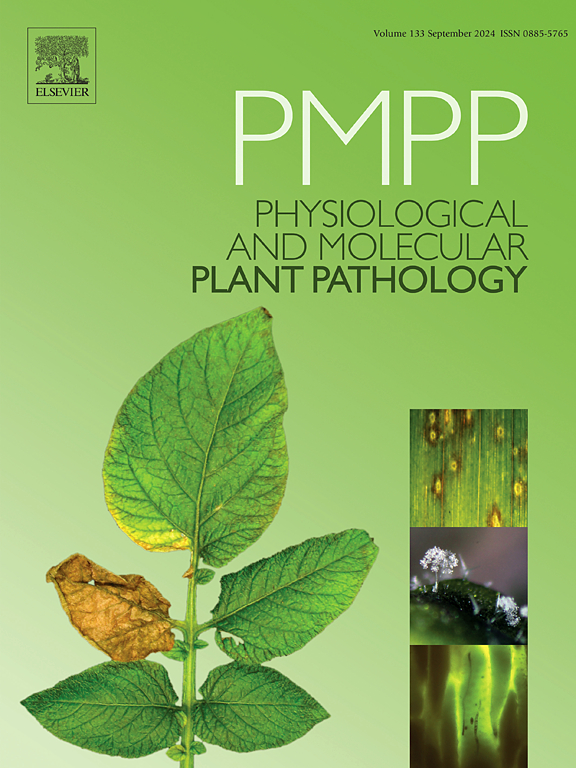The power of plant growth-promoting rhizobacteria: A systematic review on sustainable pathogen management in tomato crops
IF 2.8
3区 农林科学
Q2 PLANT SCIENCES
引用次数: 0
Abstract
This review addresses the critical role of microbial biocontrol agents, particularly Plant Growth-Promoting Rhizobacteria (PGPR), in protecting tomato crops from a range of pathogens. It was systematically examined the defense mechanisms employed by PGPR, such as the production of antimicrobial compounds, lytic enzymes, and competition for nutrients and space. This review also explores the utilization of siderophores, volatile organic compounds (VOCs), and the induction of systemic resistance in plants. focused on the interactions between various PGPR genera, including Bacillus and Pseudomonas, with a broad spectrum of pathogens in tomato plants. Additionally, it was highlight the effectiveness of PGPR against fungal, bacterial, nematode, and viral pathogens, emphasizing the role of secondary metabolites like siderophores, indole-3-acetic acid, and lipopeptides. Notably, the review clarify how diverse PGPR genera can act synergistically to enhance biocontrol strategies, presenting a promising approach for sustainable agriculture. The review concludes by identifying potential avenues for future research in optimizing PGPR-based biocontrol methods.
促进植物生长的根瘤菌的力量:番茄作物病原菌可持续管理的系统综述
本文综述了微生物生物防治剂,特别是促进植物生长的根瘤菌(Plant Growth-Promoting Rhizobacteria, PGPR)在保护番茄作物免受多种病原菌侵害中的重要作用。系统地检查了PGPR采用的防御机制,如抗菌化合物的产生,裂解酶,以及对营养和空间的竞争。本文还对铁载体、挥发性有机化合物(VOCs)的利用以及植物系统抗性的诱导进行了综述。重点研究了包括芽孢杆菌和假单胞菌在内的各种PGPR属与番茄植物中广泛的病原体之间的相互作用。此外,研究还强调了PGPR对真菌、细菌、线虫和病毒病原体的有效性,强调了次生代谢物如铁载体、吲哚-3-乙酸和脂肽的作用。值得注意的是,该综述阐明了不同的PGPR属如何协同作用以增强生物防治策略,为可持续农业提供了一条有希望的途径。本文最后指出了优化基于pgpr的生物防治方法的潜在研究方向。
本文章由计算机程序翻译,如有差异,请以英文原文为准。
求助全文
约1分钟内获得全文
求助全文
来源期刊
CiteScore
4.30
自引率
7.40%
发文量
130
审稿时长
38 days
期刊介绍:
Physiological and Molecular Plant Pathology provides an International forum for original research papers, reviews, and commentaries on all aspects of the molecular biology, biochemistry, physiology, histology and cytology, genetics and evolution of plant-microbe interactions.
Papers on all kinds of infective pathogen, including viruses, prokaryotes, fungi, and nematodes, as well as mutualistic organisms such as Rhizobium and mycorrhyzal fungi, are acceptable as long as they have a bearing on the interaction between pathogen and plant.

 求助内容:
求助内容: 应助结果提醒方式:
应助结果提醒方式:


